Protect your family, home, and community with these tips
The number of batteries in our waste stream is increasing and so are the number of battery-related fires recorded across the country. Batteries come in various types and sizes to fit different products including toys, laptops, smart phones and watches, e-cigarettes/vape pens, e-bikes and scooters, and more. If damaged or improperly charged, stored, disposed of or recycled, batteries can harm you and others. Proper disposal of these batteries helps keep you and waste and recycling workers safe while benefitting the environment.
Know your batteries
Alkaline batteries (place in garbage container)
Battery Type | Uses and Description |
|---|---|
Alkaline 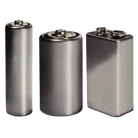 |
|
Non-alkaline batteries (requires special handling to dispose – do NOT place in garbage or recycling container)
Battery Type | Uses and Description |
|---|---|
Button-Cell or Coin 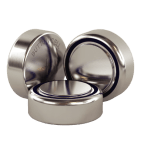 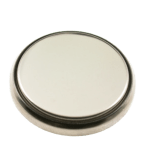 |
|
Lithium (Single-Use)  |
|
Lithium-Ion (Li-Ion) 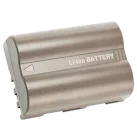 |
|
Nickel Cadmium (Ni-Cd) 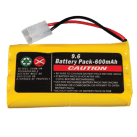 |
|
Nickel Metal Hydride (Ni-MH) 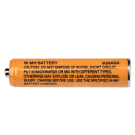 |
|
Nickel-Zinc (Ni-Zn) 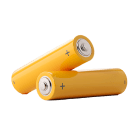 |
|
Small-Sealed Lead-Acid (Pb) 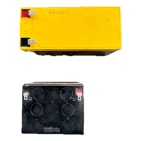 |
|
Lead-Acid (Pb)  |
|
How to store
- Always follow the manufacturer’s directions on your battery.
Store all single-use batteries in original packaging. Store rechargeable batteries in a cool, dry place.
- Do not store household batteries with other metal objects including staples and loose change. A short circuit can occur if these come into contact, quickly generating heat and possibly a fire or explosion.
- Store all batteries out of sight and reach of children to prevent accidental swallowing and improper use which could lead to serious injury.
How to use
- Always follow the manufacturer’s instructions. Different devices may have different requirements.
- Never charge a device under your pillow, on your bed, or on a couch.
- Don’t overcharge devices or leave them charging overnight. Unplug them once they are fully charged.
- Don’t charge or use batteries that are swollen, leaking, dented, or show other signs of damage.
How to dispose
- Place only alkaline batteries in the garbage.
- Do NOT place non-alkaline batteries in your household garbage or recycling containers.
- Bring non-alkaline and rechargeable batteries to a drop-off location:
- Retail businesses accept certain batteries for free:
- Hillsborough County Community Collection Centers (CCC) and Household Hazardous Waste collection events.
- Bring photo ID with Hillsborough County residential address
- No commercial waste
How to transport batteries for disposal
Prevent batteries from reacting with other batteries to keep you and county employees safe.
Step 1: Tape battery terminals with clear packing tape. Do NOT cover battery labels that indicate the chemistry of the battery.
Make sure that battery type is clearly visible to county employees, who are responsible for sorting them.
Step 2: Place each battery in an individual plastic zip-close bag, except for lead-acid batteries. Do not place more than one battery per bag. Lead-acid batteries do not need to be individually bagged.
For batteries that are too large for a baggie, such as battery packs, packaging materials are available at the CCC sites.
If the battery is damaged or swollen, contact the manufacturer or store of purchase for proper disposal and transportation guidelines.
Regional effort
Hillsborough County has joined with its regional partners to promote fire prevention awareness and proper battery disposal. Look out for these messages throughout Tampa Bay because fire prevention is everyone’s duty.


